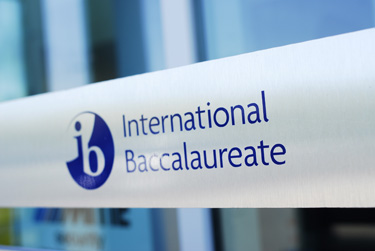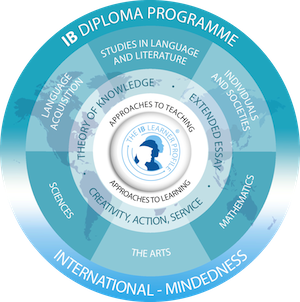One of the strongest arguments for developing a career as an international educator – in addition to all the obvious add-on advantages, such as experiencing living in different cultures and climates, broadening your world view, learning new languages and developing international mindedness – is the opportunity to work with the International Baccalaureate program (IB).
The IB programme is recognized around the world and, in my opinion, is the program of choice for any educator, student or parent.
For an educator the IB offers an excellent support network, and the opportunity to develop your skills to teach a challenging program that develops students holistically.
 Alongside developing outstanding academic ability: incorporating the ability to critically analysis, reflect and think deeply and independently, the program is also unlike any other program; incorporating opportunity for learners to address global issues, striving to create active learners who will develop greater intercultural understanding, respect for different cultures and differing perspectives from their time on the program. Ultimately IB learners are better prepared for university and will contribute to a more understanding and peaceful world.
Alongside developing outstanding academic ability: incorporating the ability to critically analysis, reflect and think deeply and independently, the program is also unlike any other program; incorporating opportunity for learners to address global issues, striving to create active learners who will develop greater intercultural understanding, respect for different cultures and differing perspectives from their time on the program. Ultimately IB learners are better prepared for university and will contribute to a more understanding and peaceful world.
The IB programme is actually four programmes, known as the Continuum: the Primary Years Programme (PYP) 3-12, the Middle Years Programme (MYP) 11-16, the Diploma Programme (DP) 16-19, and the Career-related Programme (CP) 16-19.
As an educator you will develop 21st century learning and teaching skills that will not only enable you to teach at the best international schools around the world, where IB trained teachers are in demand, but will also put you ahead of the game in terms of pedagogy should you return to the national system in your home country.
Whereas some schools will look for teachers with prior IB experience, others will accept teachers without prior IB training, but with a shared ethos and a willingness to learn.
As an educator, the IB programme, its philosophy and the implementation of its key elements, such as the IB Learner Profile – a set of ten attributes, which are applied across all four programmes – provides you with on-going professional development, day to day, in the classroom, which questions your teaching practice and challenges you to facilitate learning – rather than simply deliver teaching – which integrates 21st century technology into the classroom and places the student at the centre of the learning through a constructivist, inquiry-based approach to learning.
Starting from three years old in the PYP, IB students are encouraged to engage and ask burning questions and to bring with them prior knowledge, even at the earliest years. Learning is delivered through Units of Inquiry, which are planned by teachers collaboratively. Collaboration is key, between all stakeholders in the IB. Not only are parents invited to participate in school events, they are expected to do so, even grandparents. The old fashioned idea of a parents’ meeting is replaced by student led conferences, where the student leads their parents on a journey through their learning.
 However, the features of the IB that really make it stand apart from other programs are the core elements of the DP: Theory of Knowledge (the nature of knowledge), the Extended Essay (a personal piece of independent research) and the project initiated by the learner: Creativity Action Service (CAS). The service element recognizes that IB students need to learn about giving something back to the community and helping others – often IB students are living in a position of relative privilege and service helps them appreciate what they have and others do not. All of these factors put together are the advanced thinking elements that prepare students for university, and DP students are recognized to be much better equipped for that next step than students from other programs.
However, the features of the IB that really make it stand apart from other programs are the core elements of the DP: Theory of Knowledge (the nature of knowledge), the Extended Essay (a personal piece of independent research) and the project initiated by the learner: Creativity Action Service (CAS). The service element recognizes that IB students need to learn about giving something back to the community and helping others – often IB students are living in a position of relative privilege and service helps them appreciate what they have and others do not. All of these factors put together are the advanced thinking elements that prepare students for university, and DP students are recognized to be much better equipped for that next step than students from other programs.
Lastly, the other great factor about the IB is that it is never stagnant. It is always looking to improve and move forward. The MYP programme has been through review and development, the PYP is in that phase now, and the CP is a recently added, exciting, and growing programme as an alternative for students taking some elements of the academic programme of the DP, and some practical career-related elements to prepare those students for apprenticeship and employment.
Both the DP and the CP are developing learning traits for lifelong learning and in a nutshell that is the key skill that IB offers, as an educator you will develop an understanding of, and reflect on, the fundamental values of the IB Mission Statement:
“These programmes encourage students across the world to become active, compassionate and lifelong learners who understand that other people, with their differences, can also be right.”
Do you teach IB? Do you think it’s the curriculum of choice or do you prefer another curriculum? Feel free to join the discussion!




